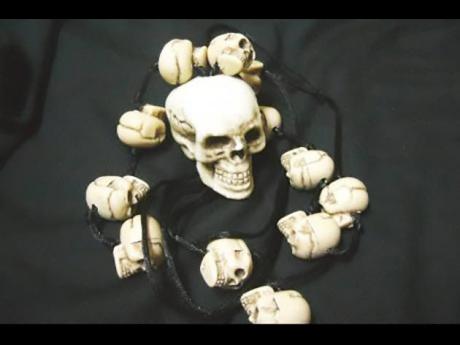Peter Espeut | The reality of obeah and myal
I do not expect persons who have no respect for God to respect Satan and his power. It is, therefore, not surprising that secularists have jumped on the bandwagon to legalise obeah under the guise of our constitutional right to freedom of religion.
There is no doubt that the Charter of Fundamental Rights and Freedoms introduced into the Constitution of Jamaica in 2011 recognises our rights to “freedom of thought, conscience and belief”, and so belief in obeah, by itself, cannot be a crime punishable by law.
Everyone is free to believe anything they wish, whether foolish or otherwise. The issue is whether anyone is free to do whatever they wish based on their beliefs and whether laws that restrict any religious practice can be constitutional.
No reasonable person could seriously argue that any religious practice should be legal just because it is a religious practice. Visit the ruins of the Mayan temple at Altun Ha in Belize and observe the altar at the top of the pyramid used for human sacrifice. Would we defend human sacrifice (virgin girls, in this case) because it is a religious practice?
No reasonable person could seriously argue that any cultural practice – whether African, European, or otherwise – should be legal just because it is a cultural practice. Female circumcision, which is a cultural practice in parts of Africa, Asia and the Middle East, cannot be defended on cultural or traditional grounds alone. Nor can the practice of incest and early sexual activity in Jamaica.
Religious and cultural practices have to meet other criteria for them to be protected by law.
WITCH-HUNTING
In 16th-century England, many people believed that witchcraft, rather than the workings of God’s will, offered a more convincing explanation of sudden and unexpected ill fortune, such as the death of a child, bad harvests, or the death of cattle. Witch-hunting became an obsession.
In 1542, the English Parliament passed the Witchcraft Act, which defined witchcraft as a perceived facility to summon evil spirits and demons to do harm to others. It was a crime punishable by death. It was repealed five years later but restored by a new act in 1562. A further law was passed in 1604. In England, 513 witches – usually elderly white women – were put on trial between 1560 and 1700. One hundred and twelve were executed.
Whatever witches and sorcerers could ‘put on’, the Church could ‘take off’ through the power of her exorcists. And this continues until today.
The Jamaican Obeah Act does not make a distinction between obeah and myal. Simply put, obeah is the science of ‘put on’, while myal is the science of ‘tek off’. The practices are still common in Jamaica, and some ‘science men’ specialise in obtaining US visas, winning court cases (bullfrog with padlocked mouth), and love potions (Oil a Love-me-Long, etc). Others specialise in harming others. Repealing the Obeah Act will open Pandora’s box, giving free rein to both the positive and negative elements in this lucrative money-making business.
Should our politicians repeal Jamaica’s obeah law, there could be more than a little self-interest. I am told that just before election time, obeah men and women do a roaring business. Legal obeah should be cheaper than illegal black-market obeah, and so frequent visitors to ‘science-men’ should support legalisation.
In some US states, there are laws against fortune telling, tarot card reading, and other divinatory practices, not because of an antipathy to witchcraft but to protect gullible persons from being swindled by con artists. Repealing Jamaica’s Obeah Act, without the necessary safeguards, will leave gullible Jamaicans open to being separated from their hard-earned money.
Over the years, I have been more than a little involved in the ministry of casting out demons, and I know of an exorcism conducted earlier this week. I can testify to the reality of the power of evil personified, and it is no ‘joke business’. I can see no good outcome to legalising obeah in this blessed land.
Peter Espeut is a sociologist and Roman Catholic deacon. Email feedback to columns@gleanerjm.com.

